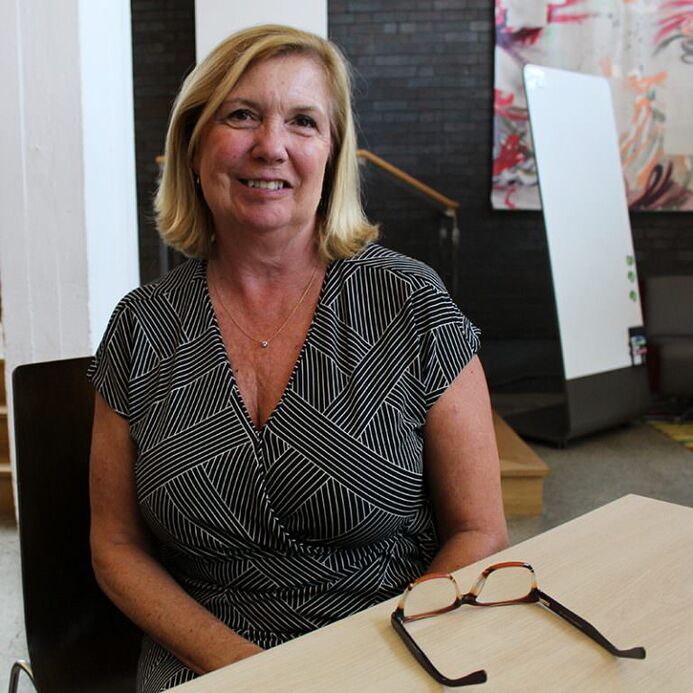The Central Square Business Improvement District would not be possible without the support of our amazing consultant, Ann Burke. Ann has been successful in helping a number of Massachusetts’ BIDs get online. Learn more about Ann, her experience working with BIDs, and her vision for the Central Square BID below!

“I’ve been working with management districts in Massachusetts and elsewhere for 30 years, and actually wrote the Business Improvement District (BID) Legislation with some of my colleagues around the state. We formed the first BID in Springfield, and I’ve consulted on a number of BIDs throughout Massachusetts since. Through my contacts with the state, I do technical advising with the Massachusetts Downtown Initiative and was introduced to Central Square through my state relationships.
My day-to-day work with BIDs really depends. I’ve done everything from being an advisor to groups that have the professional staff to go through the process of becoming a BID, to actually putting those groups together myself. It depends on the community and where they need my help.
The beauty of a Business Improvement District is that each one is locally driven.The supplemental programs and services a BID provides in its specific district are unique to that neighborhood, and that’s why BIDs are so impactful. There’s no cookie cutter approach. Each BID goes through a process of determining what’s important to their specific district before they put the supplemental services in motion to make that happen. A BID is the entity that brings people together and provides stewardship of the space so the BID is welcoming, safe, and clean for everyone who wants to live there, open a business, dine there, or visit for a cultural experience.
There are two big misconceptions about BIDs. One is that they are only for businesses. When BIDs first began in the 60s, they were formed as a response to districts that felt the impact of regional malls. There was a commercial and retail aspect to them, but over the years, downtowns and different districts have become much more than retail. There are now residents, educational facilities, and cultural facilities. BIDs are asked to do more and really look at the fragile ecosystem that is part of a downtown or a district and determine how the BID can support the ecosystem in its entirety to make it work.
The second misconception is that a BID only supports the interests of businesses. BIDs aim to create a healthy, safe, attractive environment for everyone. Whether you’re a resident, passing through, or a business, the district needs to work for you. That’s the balance and the goal of a BID. You’ll find people on social media who are concerned that a BID will get rid of people who are homeless or poor, but that’s not how a BID works. Every BID I’ve worked with looks at how they can deliver services for people in need. They work to balance that with the need for creating a safe environment and making the district comfortable for everyone who is there.
I congratulate the Central Square BID on what it’s going through right now because it’s been a very inclusive process. We’ve heard a real desire from residents, business owners, and property owners to celebrate diversity and keep Central Square full of authenticity, wonder, and discovery. We want to really celebrate and highlight that. While doing so, the BID also needs to think about how to enhance the physical environment and support the quality of life issues, the cultural district, the diverse populations, the restaurant and nightlife, the cultural activities, and the property owners. People want to preserve and celebrate the culture in Central Square, and I think we’ll really see that come out of this process.”
— Ann Burke, Consultant to the Central Square BID